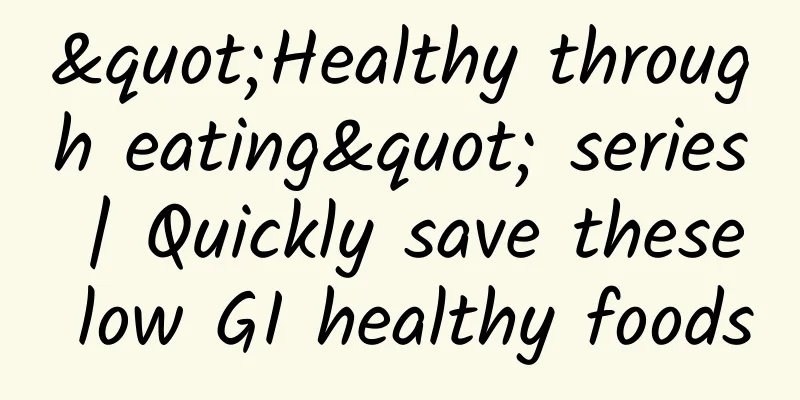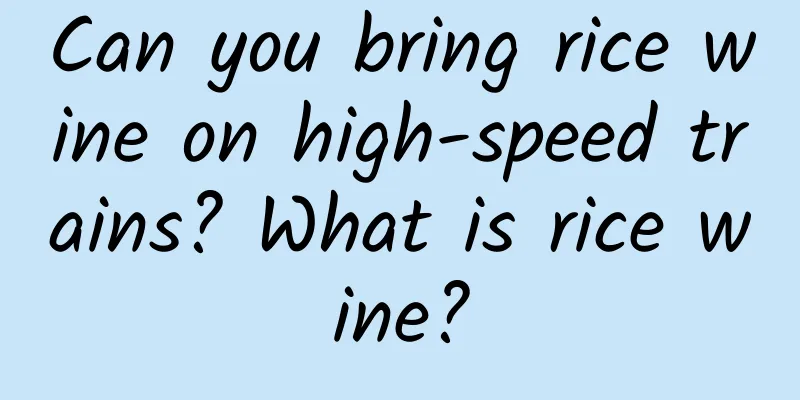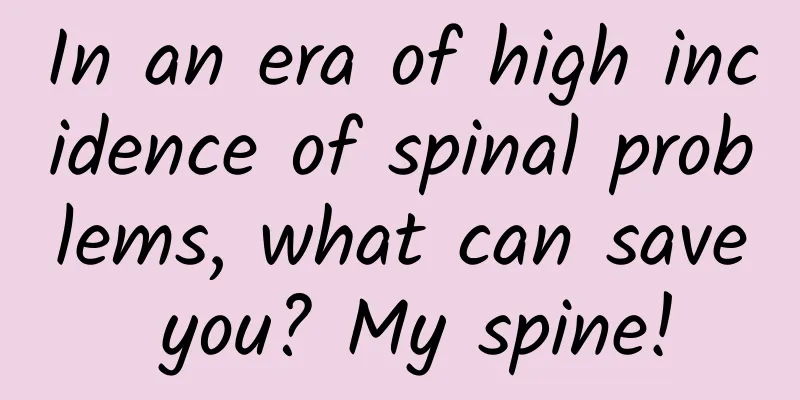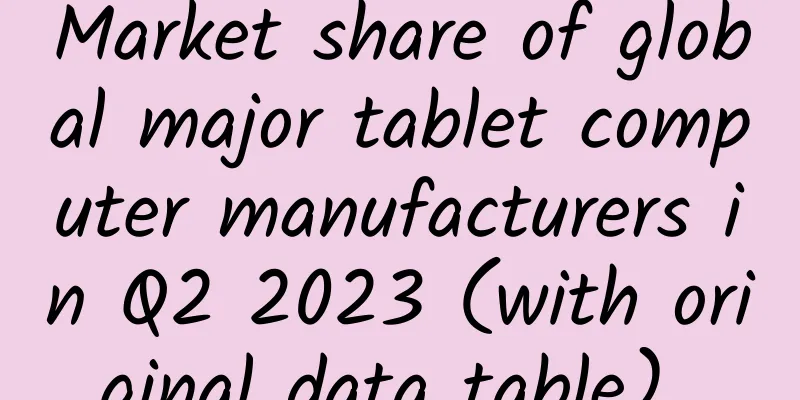Why do kidneys still get damaged after taking antihypertensive drugs? Is it related to the drugs?
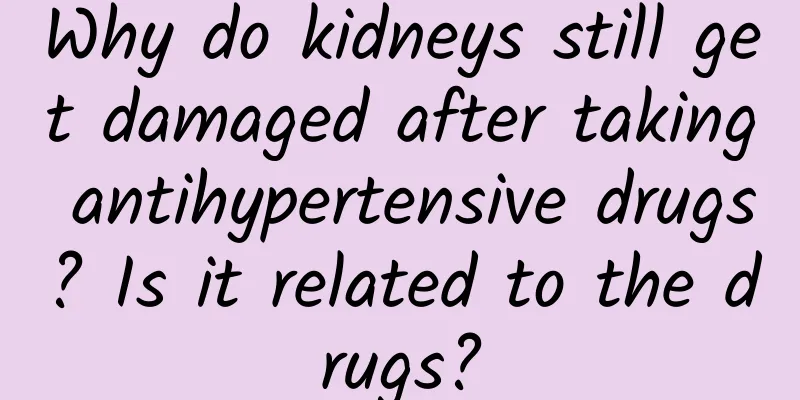
|
A friend told Huazi that he didn't want to take dihydropyridine anymore. Huazi asked him why. He said that dihydropyridine would damage the kidneys and would damage the kidneys over time. He had a friend who was like this. He had been taking medicine for high blood pressure for 10 years and now had uremia. Huazi told him that the patient who suffered from uremia was definitely not suffering from medication, and the antihypertensive drugs could not be blamed. Hypertension is the culprit of kidney damage, and the function of antihypertensive drugs is to protect the kidneys. The reason for kidney damage is probably because the antihypertensive drugs were used irrationally and blood pressure was not controlled well. 1. How does high blood pressure harm the kidneys? Hypertension harms the kidneys in two main ways. First, the increase in blood pressure leads to high perfusion, high filtration and high transmembrane pressure in the glomeruli. The increased pressure in the glomeruli directly damages the kidneys. Excessive blood pressure can damage renal tubular epithelial cells, causing large molecular proteins to leak out and block the renal sieve system. Secondly, hypertension damages the renal arterial system, causing atherosclerosis, narrowing of the arterial lumen, and reduced blood perfusion to the kidneys, leading to renal ischemia and hypoxia, and kidney damage. After renal ischemia, renin secretion increases, further aggravating hypertension through the renin-angiotensin-aldosterone system (RAAS). In other words, hypertension and kidney damage are mutually causal, forming a vicious cycle. 2. How long does high blood pressure take to harm the kidneys? The human kidneys have a huge compensatory function. The human body has two kidneys, each with about 1 million nephrons. Using only about one-third of the nephrons can meet the body's daily metabolic needs. As long as the loss of nephrons does not exceed 70%, there will be no obvious symptoms. Although high blood pressure can cause kidney damage, this is a long process. Generally speaking, it takes 5 to 10 years of uncontrolled high blood pressure to cause significant kidney damage. As long as blood pressure can be controlled in time, kidney damage can be avoided. If it is found in the early stages of kidney damage, as long as blood pressure is controlled in time, the progression of the disease can be delayed and the uremia stage can be avoided. 3. Blood pressure must reach the control target to protect the kidneys High blood pressure is the main mechanism of kidney damage. So lowering blood pressure is to protect the kidneys. Those who still suffer kidney damage after taking antihypertensive drugs are basically because of unreasonable medication, which leads to substandard blood pressure control. Many people think that everything will be fine after taking antihypertensive drugs. They do not measure their blood pressure and take the drugs based on their feeling. In fact, their blood pressure is not controlled up to standard. As a result, high blood pressure continues to damage their bodies without them realizing it. Until kidney damage occurs, they start to suspect that the drugs have damaged their kidneys. The diagnostic standard for hypertension is 140/90 mmHg, the blood pressure control target is usually 130/80 mmHg, and the ideal blood pressure is 120/80 mmHg. People with hypertension must measure their blood pressure when taking medicine to ensure that their blood pressure reaches the control target. 4. What else should you do to protect your kidneys? Controlling blood pressure to the target is the most important way to protect the kidneys. Among antihypertensive drugs, sartan and pril have strong inhibitory effects on RAAS and have a kidney-protecting effect. You can use sartan or pril as a basic medication, combined with other antihypertensive drugs, to try to control blood pressure near the ideal index. In terms of diet, salt intake should be controlled. The daily intake of salt should not exceed 5 grams. This can lower blood pressure and reduce the burden on kidney regulation. Nitrogen generated after protein metabolism needs to be excreted through the kidneys, so people with poor kidneys should control their protein intake and not eat too much high-protein foods such as beans and meat. To sum up, antihypertensive drugs will not damage the kidneys. Uncontrolled high blood pressure is the culprit that harms the kidneys. When taking antihypertensive drugs, blood pressure should be measured. Only when blood pressure reaches the standard can the kidneys be effectively protected. Regular physical examinations should be conducted every year to check the indicators related to kidney function and timely intervention should be made if problems are found. The use of drugs needs to be carried out under the guidance of a doctor. If you have any questions about medication, please consult a doctor or pharmacist. I am pharmacist Huazi, welcome to follow me and share more health knowledge. |
Recommend
Hahahaha, on Chinese athletes' obsession with masks
The Tokyo Olympics is halfway through, and as of ...
What pregnant women eat will affect the quality of amniotic fluid. What foods should not be eaten if the quality of amniotic fluid is poor?
We all know that after a woman becomes pregnant, ...
Foods that are not suitable for chocolate cysts
Chocolate cyst is a lump that grows on the uterus...
Why is my vulva itchy all the time?
The vulva is a relatively important and private p...
Is it normal for my period blood to be bright red?
Women's menstruation is often very punctual, ...
How low is the amniotic fluid level to require a cesarean section
Caesarean section is a relatively common method o...
What is the best way to induce menstruation if my period is delayed for more than 10 days?
Female menstruation is one of the most important ...
How many months of pregnancy is it worst to get angry
Pregnancy is very important for a woman, especial...
What is the reason for the spots on the face of a 40-year-old woman
What causes spots on the face of a 40-year-old wo...
What should women do if they have kidney deficiency and cold uterus?
Women are more prone to kidney deficiency and ute...
Drinking can prevent frostbite and warm the body? Don’t believe these 6 drinking rumors!
When eating, you can't help but drink a few g...
Why haven't plague and cholera been eradicated? Which is more serious?
Plague and cholera are Class A infectious disease...
How to care for thick yellow leucorrhea
If the leucorrhea is thick and yellow, then it is...
Pregnant women dream of measuring parallel bars
Although pregnancy is a very natural process for ...
What to do if the female vulva is itchy and painful
Clinically, it is believed that vaginitis or bact...




